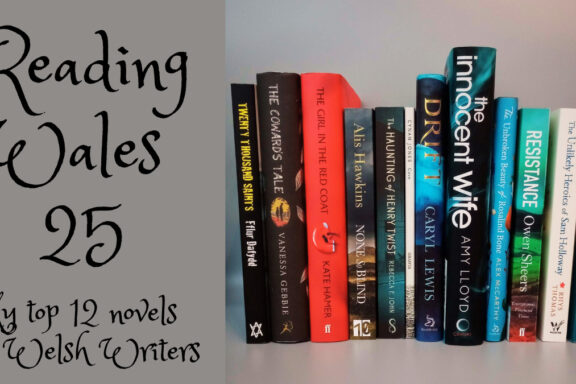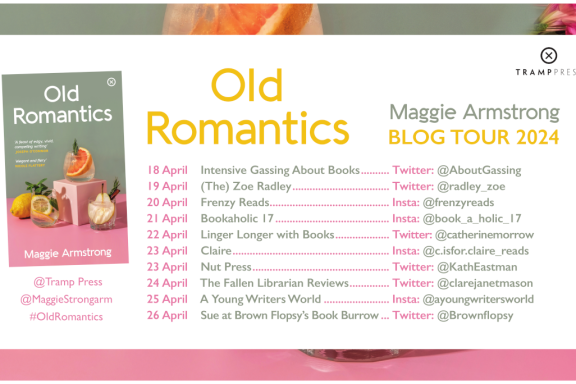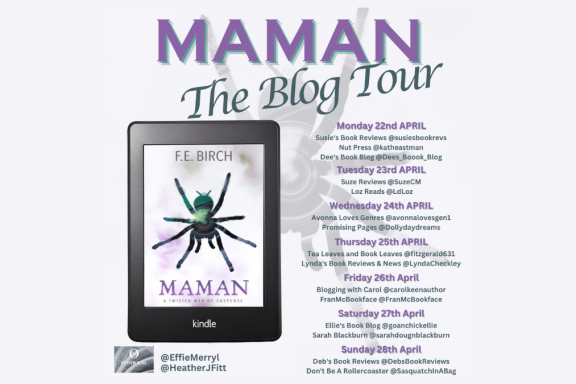 Welcome back for Part 2 of my interview with Honno author Jo Verity. (You can read Part 1 here.) Today, we’re talking about her latest novel, Left and Leaving.
Welcome back for Part 2 of my interview with Honno author Jo Verity. (You can read Part 1 here.) Today, we’re talking about her latest novel, Left and Leaving.
Photographer Gil is on an extended grey gap-year, working in the London hospital to which Vivian brings Irene for emergency treatment; together they try to establish calm amid the chaos. Irene is thrilled with her ‘guardian angels’, they less so with her ongoing interest in their lives.
Gil has a girlfriend, living in the same building as him, and a troublesome family back home. Thirty-something Vivian has a high- flying boyfriend, an irascible father and a demanding job. But they keep finding reasons to spend time together in the run up to Christmas. And still there is Irene, intent on fi lling the holes in her life…
Marooned in Tooting by a sudden snowstorm, Vivian and Gil are forced to spend the holiday confronting secrets and responsibilities they’ve been complacent about for too long.
Left and Leaving is your fifth novel published by Honno, the Welsh Women’s Press, where did that have its origins?
I have a daughter and grandchildren living in London and I spend a fair amount of time there. (What a place to people watch!) No one cares who you are or what you do – both a blessing and a curse. I thought it would be interesting to bring together one character who craves its anonymity with one who has become isolated. These two people would, in normal circumstances, never meet. The interesting part for me was working out how to get them together. Playing God is one of a writer’s greatest pleasures.
I love the cover image of two garden chairs covered with snow, standing in the snow. It suits the book so well. Is it the cover you had in mind and did you have much say in it?
Honno has always listened to my suggestions for cover images. We’ve had some ‘lively’ discussions, but we’ve always come up with something that’s acceptable to both of us.
Having worked in graphics, the ‘look’ of a book – mine or anyone else’s – is particularly important to me. I know what I like! (Not wobbly hand-lettering and pastel colours, for a start.) Over the course of 5 novels I’ve come to accept that an image which pleases me may not be right for the book. The publisher knows what helps to sell a book which is, after all, pretty important! Ideally a cover ought to hint at what happens in the story or at least the kind of story it is.
I’m delighted with the cover of Left and Leaving. I think it succeeds in being both a striking image and it conveys the mood of the story. Two abandoned chairs, close together but isolated. A hard winter.
As well as the cover, the title Left and Leaving fits the book so well and can be taken to apply any number of ways to it. At what stage of writing, did you come up with it and do you find it easy to think of titles? (I don’t.)
Thinking up the title for your book is as much fun as thinking up the name for your band. I had a few false starts before coming up with Left and Leaving. (A Hard Winter was a contender.) Thanks to the complexities of the English language – participles, parts of speech and all that stuff – the phrase is satisfyingly ambiguous. The act of leaving. Being left behind. Who’s gone? Who’s about to go? Leaving a message. Or a fortune. Turning left. Left-handed, even. Several of these apply to Vivian and Gil’s story.
One of your main characters,Vivian, works as an architect, which is what I believe you trained as one but another main character, Gil, has a more unusual job. How did you decide what they both did and come up with that for him?
Work is a massive part of everyone’s life. It was vital to ensure that Vivian and Gil’s days were spent in doing convincing things in convincing surroundings.
Architecture is a reasonably gender neutral profession. Deciding to make Vivian an architect enabled me to have a female protagonist who is single-minded, stylish, independent, slightly eccentric. She makes important decisions. She can work anywhere in the world. She earns a decent salary. All of this allows her to be totally self reliant. I have a pretty good idea how architects work and the environment in which they work and I was confident I could create a realistic setting for the work side of her life.
Gil’s (failed) ambition as a young man in Australia was to be a photo journalist. But he’s a pragmatist so when he ‘escapes’ to London, he takes a job as a medical photographer at University College Hospital. From the point of view of the narrative, this allows him to interact with a huge number and variety of people. It gave me the opportunity to set up some plausible sub-plots. Also to paint a picture of cosmopolitan London. I worked for some time as a graphic artist in Cardiff Dental Hospital where I got to know several medical photographers and saw what the job entailed. To be sure it was the same in London, I spent a day with the medical photographer at UCLH who showed me around and ran through his method of working. This research was really worth doing as it pinpointed certain differences in working practises. I learned that his office is on one side of Euston Road and the hospital is on the other. Gil really would have spent a lot of time criss-crossing the road.
Did you know how Left and Leaving would end before you started writing it or is it something that you realise during the writing, and how do you know or choose where to end things? Does there have to be a happy ending?
I had no clue how, or when, the book would end. I never do. You’ll know if you’ve created credible characters because at some point (maybe 4 or 5 chapters in) they’ll take on a life of their own. They’ll start telling you the direction they want to take. Push them into doing something that’s ‘out of character’ and they won’t budge. If I’m bogged down, it’s usually because I’ve forced my protagonist/s to do something they wouldn’t do. I once spent three weeks totally stuck and had to to find out where I’d headed down that blind alley. That’s not to say you don’t have to present them with options – but it’s up to them to choose. Does that sound bonkers? (Not remotely, no.)
Where to start and where to finish a book is trickier than you might think. Especially a ‘quiet’ character driven book. By definition, a ‘slice of life’ book (I don’t like the phrase but it does sort of sum up my books), starts when things are already going on and finishes when things are still going on. In, say, a six month chunk of anyone’s life certain issues will be resolved, others won’t be. New problems will crop up. I don’t do ‘happy endings’. Readers must decide for themselves what happens to the characters. They could win the lottery or be run over by a bus. Or they could just continue doing the best they can as most of us have to do.
What would you like your reader to take from having read Left and Leaving?
I’d like them to enjoy the time they spend with Vivian and Gil. Empathise with them even if they don’t like them. I’ll feel I’ve succeeded if, once in a while, they remember them, and wonder what happens to them after the final full stop.
In an interview, John Updike once said that his aim was ‘… to give the mundane its beautiful due.’ I’ll go with that.
 Jo Verity lives in Rhiwbina, Cardiff, and has worked as a graphic designer and medical graphic artist. Jo has published five novels with Honno since she started writing: Left and Leaving, Not Funny, Not Clever, Bells, Sweets From Morocco and Everything in the Garden. You can follow Jo on Twitter.
Jo Verity lives in Rhiwbina, Cardiff, and has worked as a graphic designer and medical graphic artist. Jo has published five novels with Honno since she started writing: Left and Leaving, Not Funny, Not Clever, Bells, Sweets From Morocco and Everything in the Garden. You can follow Jo on Twitter.
Left and Leaving is currently available from Amazon UK until the end of December 2015 for only £1.99 in the Kindle Monthly Deal.
To be put into the draw to win a signed copy of the paperback, leave a comment below telling me what you’d like to see ‘left and leaving’ in 2015.



The detailed answers in Part 2 have certainly whetted my appetite to read ‘Left and Leaving’, Jo and Kath. It’s now on my TBR list and I shall download it for my Kindle soon. Thank you both.
Brilliant! I think you’ll really enjoy it, Jan.
All done!
Da iawn! Happy Reading!
I would like to read “Left and leaving” The title is enticing. The cover depicts emptiness and space but you should never judge a book by its cover.
Congratulations Julie! A signed copy of Left & Leaving is winging its way to you. I hope you enjoy it as much as I did. Merry Christmas!